Discover Premium Ceramic Products | Durability & Elegance United | Advanced Ceramics
Boron Carbide
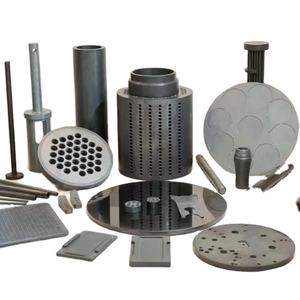
High Purity 99% Nanoparticle Boron Carbide Powder 500nm Ceramic Powder B4C Semiconductor Material Boron Carbide Powder

High Temperature Resistance Boron Carbide Nozzle B4C Ceramic Tube Sleeve
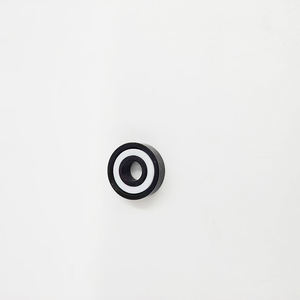
Customized High Hardness Boron Carbide B4C Ceramic Block for Sand Mill
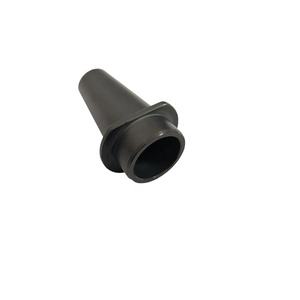
Exceptional Hardness Boron Carbide B4C Ceramic Square Bar
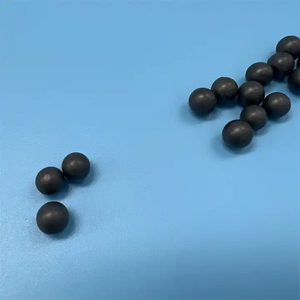
Borax Carbide Particles B4C Nanoparticle Boron Carbide Powder for Ceramic Vest
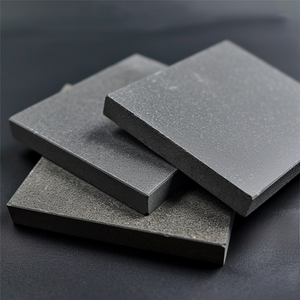
High Hardness Ceramics Silicon Boron Carbide B4c Vest Plate
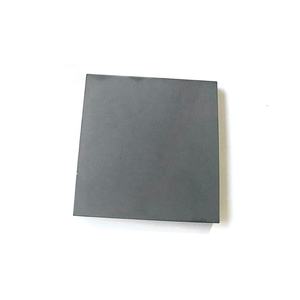
Customized Boron Carbide Ceramic B4C Circle with Double Holes
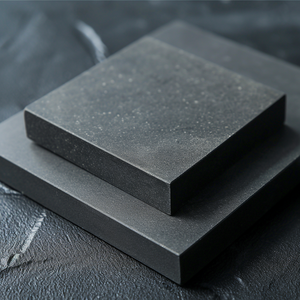
High Pressure Resistant Boron Carbide B4c Ceramic Panel Parts
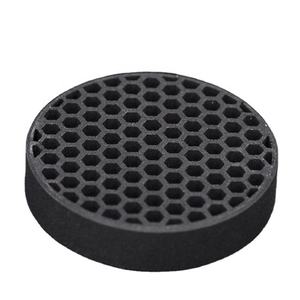
High Purity Boron Carbide B4C Ceramic Sandblasting Nozzles Abrasive Blasting Part
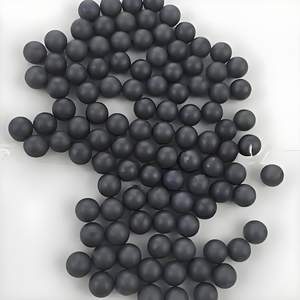
40mm across Hexagon Boron Carbide (B4C) Ceramic Plate Premium Ceramics Product

High Purity 99% Nanoparticle Boron Carbide Powder 500nm Ceramic Powder B4C Semiconductor Material Boron Carbide Powder
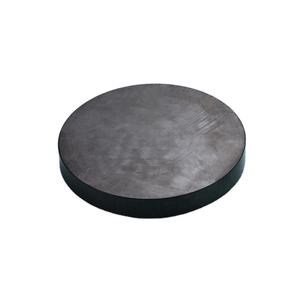
High Temperature Resistance Boron Carbide Nozzle B4C Ceramic Tube Sleeve
Overview of Boron Carbide Ceramic Products
Boron carbide (B₄C) ceramics represent a class of advanced engineering materials renowned for their exceptional hardness, high strength, and outstanding wear resistance. These ceramics are engineered to deliver superior performance in extreme environments characterized by high temperatures, mechanical stress, and corrosive conditions. Utilizing high-purity boron carbide as the base material, these products offer unparalleled durability and reliability across various industries. Whether used in ballistic protection or cutting-edge industrial applications, boron carbide ceramics set new standards for performance and efficiency.
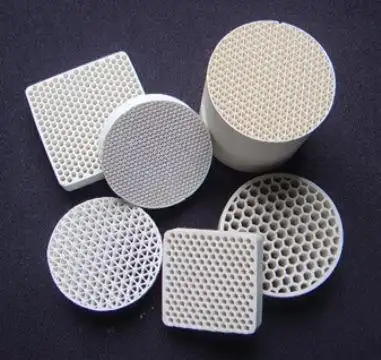


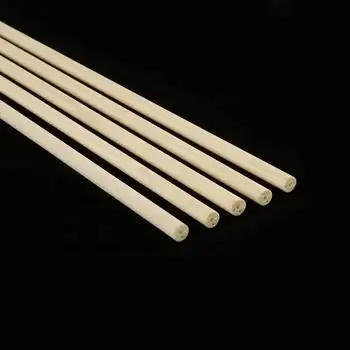
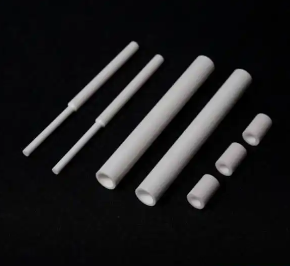
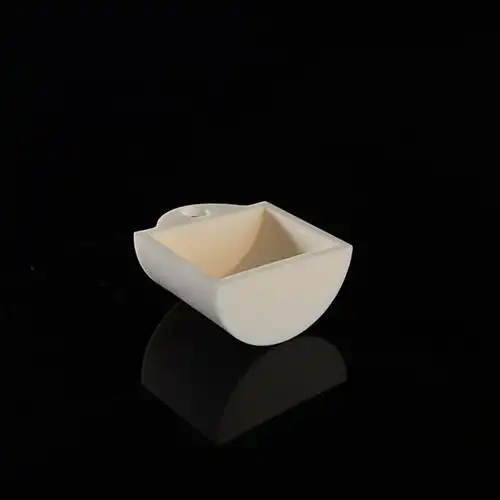
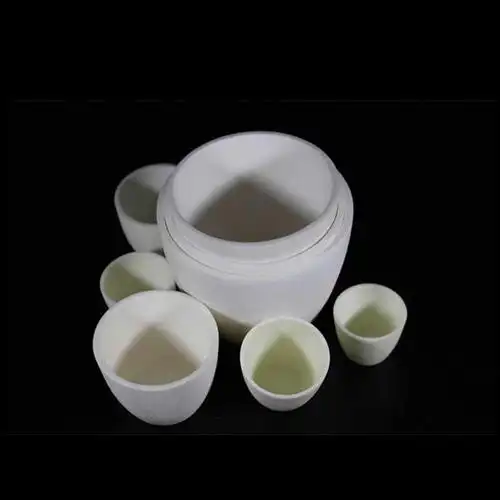
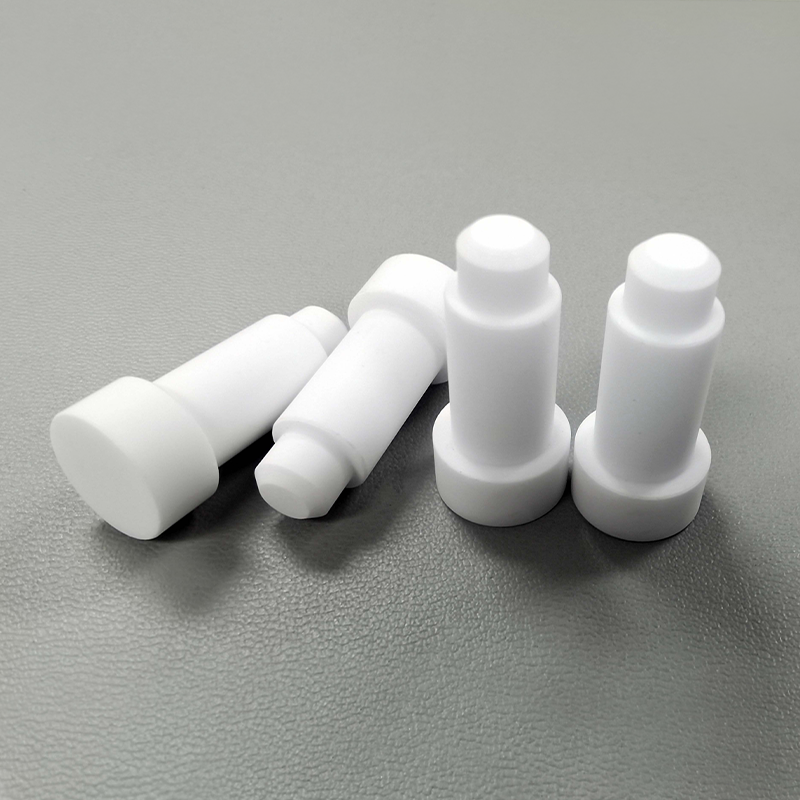
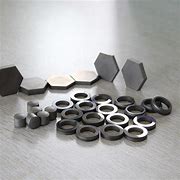
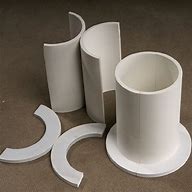
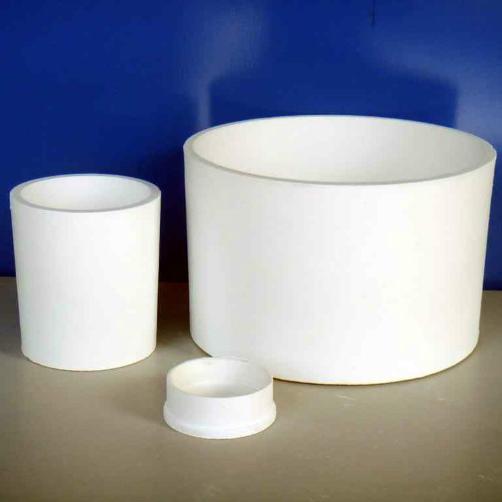
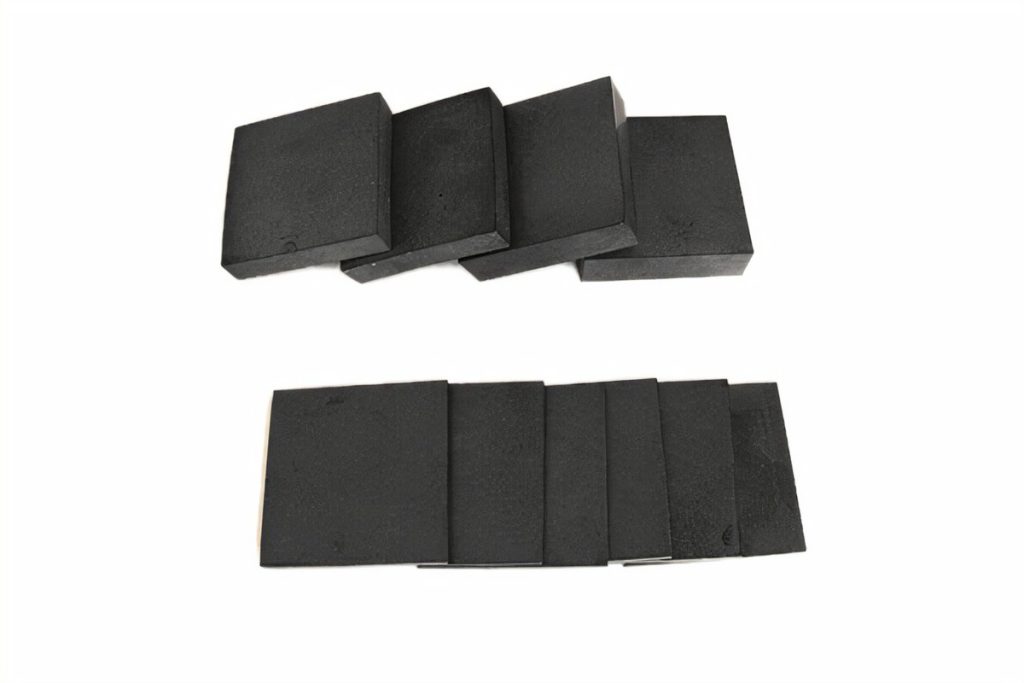
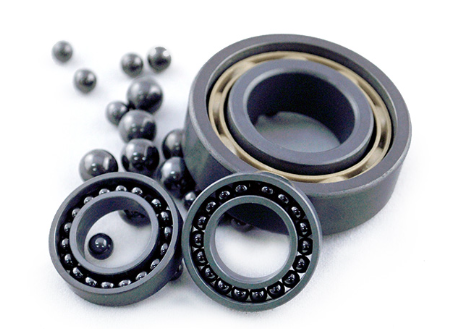
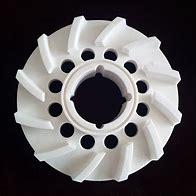
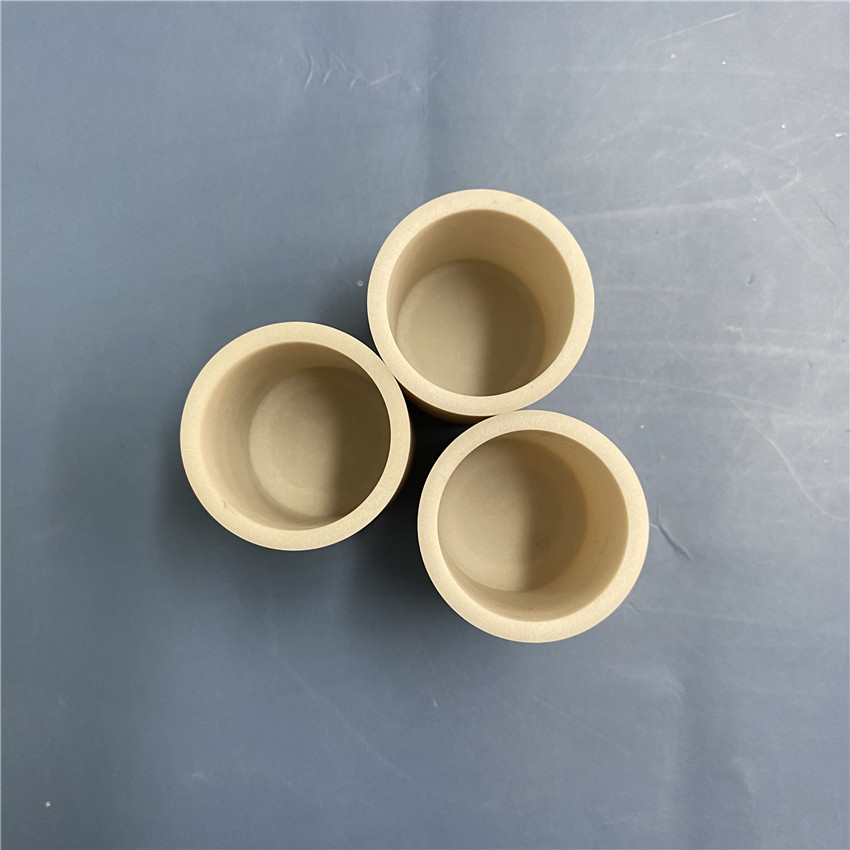
Features of Boron Carbide Ceramic Products
- Extreme Hardness: With a Mohs hardness rating of 9.3, boron carbide is one of the hardest materials known, second only to diamond.
- High Compressive Strength: Exhibits compressive strengths exceeding 50 GPa, making it highly resistant to deformation under pressure.
- Low Density: Despite its hardness, boron carbide has a relatively low density (approximately 2.52 g/cm³), which is beneficial for weight-sensitive applications.
- Excellent Wear Resistance: The hardness and density of boron carbide make it an excellent choice for components exposed to significant wear and abrasion.
- Chemical Inertness: Highly resistant to corrosion from acids, alkalis, and organic solvents, ensuring long-lasting performance in harsh environments.
- High Melting Point: With a melting point of around 2450°C, boron carbide can withstand extremely high temperatures.
- Self-Lubricating Properties: Has a low coefficient of friction, reducing the need for additional lubricants in moving parts.
- Neutron Absorption: High neutron absorption cross-section makes it ideal for nuclear applications.
Specifications of Boron Carbide Ceramic Products
| Property | Specification |
|---|---|
| Material Composition | High-purity boron carbide (B₄C), often with dopants for specific applications |
| Density | 2.52 g/cm³ |
| Hardness (Mohs Scale) | 9.3 |
| Hardness (Vickers) | ~4600 HV |
| Fracture Toughness | 3 - 5 MPa·m^(1/2) |
| Compressive Strength | > 50 GPa |
| Tensile Strength | > 300 MPa |
| Flexural Strength | > 400 MPa |
| Elastic Modulus | 460 - 500 GPa |
| Thermal Conductivity | 27 - 33 W/m·K |
| Coefficient of Thermal Expansion (CTE) | 4.5 - 5.8 × 10⁻⁶/°C |
| Maximum Service Temperature | Continuous up to 2450°C in inert atmospheres; limited by oxidation in air |
| Thermal Shock Resistance | Moderate, ΔT ~ 400°C (depending on thickness and shape) |
| Dielectric Strength | > 15 kV/mm |
| Volume Resistivity | > 10¹⁵ Ω·cm at 25°C |
| Surface Resistivity | > 10¹⁴ Ω/sq at 25°C |
| Dielectric Constant (εr) | ~6.5 at 1 MHz |
| Loss Tangent (tan δ) | < 0.0002 at 1 MHz |
| Chemical Resistance | Excellent resistance to acids, alkalis, and organic solvents |
| Neutron Absorption Cross-Section | High (~600 barns for B-10 isotope) |
| Porosity | < 0.5% |
| Water Absorption | < 0.1% |
| Color Options | Natural black; customizable colors through pigmentation |
| Finish Options | Polished, honed, matte, textured |
| Environmental Impact | Recyclable, low environmental footprint |
Applications of Boron Carbide Ceramic Products
- Ballistic Protection: Used extensively in body armor and vehicle armor due to its high hardness and light weight.
- Industrial Abrasives: Ideal for grinding, cutting, and polishing applications where durability and precision are critical.
- Nuclear Industry: Employed in control rods and shielding materials for nuclear reactors due to its neutron absorption properties.
- Mechanical Engineering: Suitable for wear-resistant components such as nozzles, dies, and bearings.
- Chemical Processing: Used in pump components, valves, and other parts exposed to aggressive chemicals.
- Electronics: Beneficial for certain electronic components requiring high thermal stability and electrical insulation.
- Aerospace: Applied in engine components and heat shields where high temperatures and mechanical stress are common.
Company Introduction
Advanced Ceramics is committed to being the world's leading provider of ceramic material solutions. Since our inception in 2012, we have focused on the development, production and sales of high-performance ceramic products, providing our customers with innovative products and quality services. With a deep understanding of material science and advanced manufacturing technology, we have won wide recognition in a variety of fields, including electronics, machinery, construction, and medical care.
Our core competitiveness lies in continuous technological innovation and strict quality control. We have an R&D team of senior scientists and engineers who are constantly exploring the application potential of new materials to ensure that our products are always at the forefront of the industry. At the same time, we have established a perfect quality management system, from the selection of raw materials to the finished product factory, each link is strictly tested to ensure the high quality and consistency of our products.
Advanced Ceramics' product line covers a wide range of ceramic applications, including but not limited to: high-precision electronic ceramic components, wear-resistant mechanical parts, decorative building materials, and medical implants. We not only provide standard products, but also customize ceramic products with special specifications and functions according to customers' needs. In addition, we actively promote the concept of green environmental protection, all production processes comply with international environmental standards, and strive to minimize the impact on the environment.
For more information, please feel free to contact us.(nanotrun@yahoo.com)
Payment Methods
L/C, T/T, Western Union, Paypal, Credit Card etc.
Shipment Methods
By sea, by air, by express as soon as possible once payment receipt.
5 FAQs of Boron Carbide Ceramic Products
- Q: What makes boron carbide ceramics so hard? A: Boron carbide's hardness comes from its strong covalent bonding between boron and carbon atoms, resulting in a crystal structure that resists deformation and wear.
- Q: Can boron carbide ceramics be machined after sintering? A: While boron carbide is very hard, it can be machined using diamond tools. However, machining should be done by professionals familiar with ceramic machining techniques to avoid damage.
- Q: How does boron carbide compare to traditional ceramics in terms of thermal shock resistance? A: Boron carbide has moderate thermal shock resistance; while not as high as some ceramics like silicon nitride, it benefits from its low coefficient of thermal expansion and high thermal conductivity.
- Q: Are boron carbide ceramics suitable for high-temperature applications? A: Yes, boron carbide can withstand continuous service temperatures up to 2450°C, making it ideal for high-temperature environments, especially in vacuum or inert atmospheres.
- Q: What maintenance do boron carbide ceramic surfaces require? A: Boron carbide ceramics are easy to maintain; regular cleaning with mild soap and water is usually sufficient. For tougher stains, non-abrasive cleaners can be used without damaging the surface.
